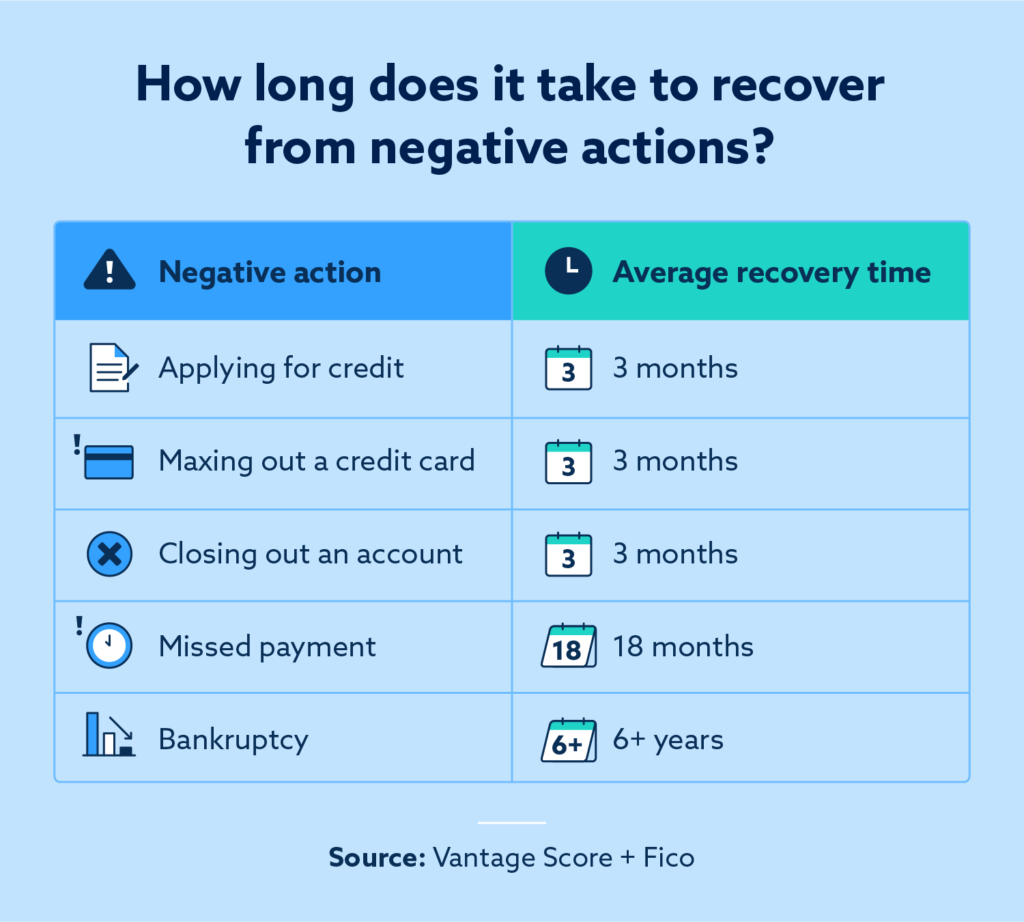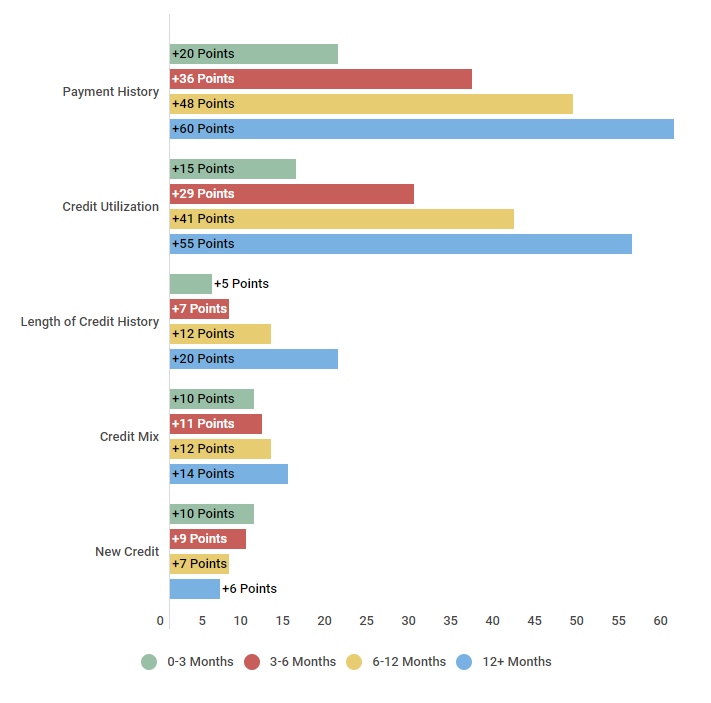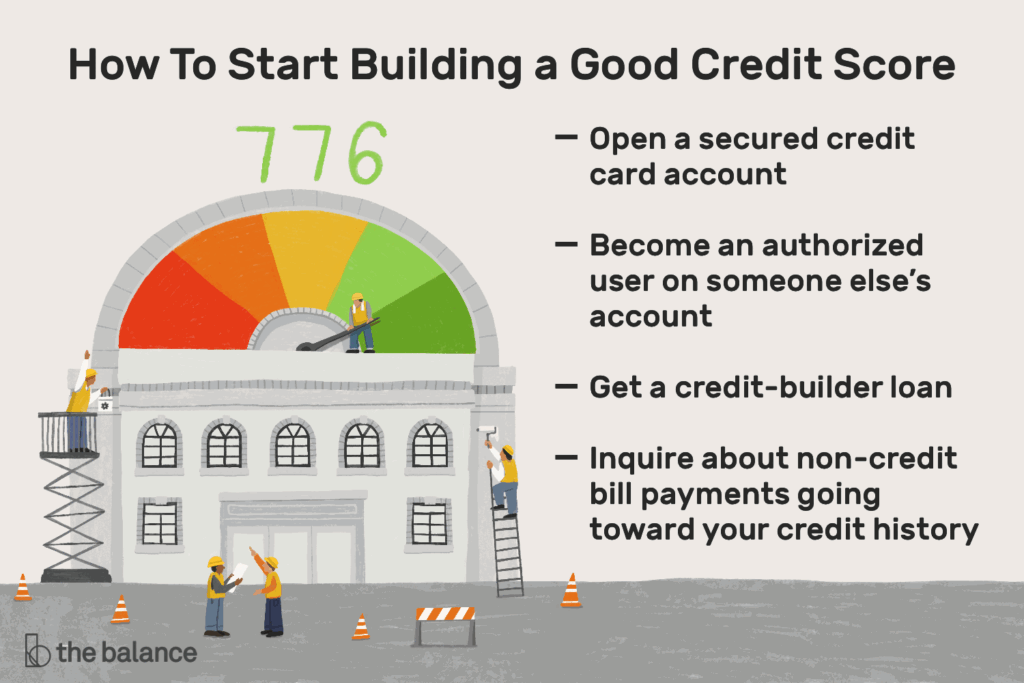In this article, we will explore the timeline for seeing improvements in your credit score. We will discuss the factors that influence how quickly your score can increase, such as payment history and credit utilization. Additionally, we will provide tips and strategies to help you speed up the process and achieve a better credit score.

This image is property of www.lexingtonlaw.com.
Factors that Influence Credit Score
Your credit score is a numerical representation of your creditworthiness, and it is used by lenders to assess the risk of lending you money. Several factors determine your credit score, and understanding these factors can help you make better financial decisions. Here are the key factors that influence your credit score:
Payment History
Your payment history is one of the most significant factors affecting your credit score. It refers to how you have managed your debts in the past, including whether you have paid your bills on time or if you have any delinquencies or defaults. Consistently making timely payments can have a positive impact on your credit score.
Credit Utilization
Credit utilization is the percentage of your available credit that you are currently using. A high credit utilization ratio can negatively impact your credit score, as it suggests that you may be financially overextended. To improve your credit score, aim to keep your credit utilization below 30% of your available credit.
Length of Credit History
The length of your credit history is also a crucial factor in determining your credit score. Lenders prefer borrowers with a longer credit history as it provides them with more information about your borrowing habits. If you are just starting to build your credit history, it may take some time to see significant improvements in your credit score.
Types of Credit
Having a diverse mix of credit accounts, such as credit cards, loans, and mortgages, is considered favorable for your credit score. It demonstrates your ability to manage various types of credit responsibly. However, it is essential to use different types of credit responsibly and not to take on more debt than you can handle.
Credit Inquiries
Whenever you apply for new credit, including loans or credit cards, the lender will perform a “hard inquiry” on your credit report. Too many hard inquiries can negatively impact your credit score, as it may suggest an increased risk of borrowing. It is advisable to limit the number of credit inquiries you make within a short period.
Immediate Actions to Improve Credit Score
If you are looking to improve your credit score quickly, certain immediate actions can help in the short term. Here are some steps that you can take:
Paying Bills on Time
Consistently making timely payments is one of the most effective ways to improve your credit score. Set up payment reminders or automatic payments to ensure that you never miss a payment deadline. Paying your bills on time demonstrates your reliability as a borrower.
Reducing Credit Card Balances
High credit card balances can negatively impact your credit score, especially if your credit utilization is high. By reducing your credit card balances, you can quickly improve your credit utilization ratio, thus positively influencing your credit score.
Avoiding Opening Multiple New Credit Accounts
While having a diverse mix of credit accounts is beneficial, opening multiple new credit accounts within a short period can suggest a higher risk of borrowing. It is advisable to avoid opening new credit accounts unless necessary.
Checking Credit Reports for Errors
Regularly checking your credit reports is essential to ensure that they are accurate. Any errors or discrepancies in your credit reports can negatively impact your credit score. If you find any discrepancies, contact the credit bureau to have them corrected.
Short-Term Improvements in Credit Score
While immediate actions can lead to some short-term improvements in your credit score, significant changes typically take time. Here are some short-term improvements you might expect to see over specific time frames:
1-2 Months: Payment History Updates
Making consistent, on-time payments for a few months can start to improve your credit score. Lenders prefer to see a history of responsible payment behavior, and as your payment history updates, your credit score may begin to reflect this positive change.
2-4 Months: Credit Card Balances Reduction
As you continue to reduce your credit card balances, your credit utilization ratio will improve. It may take a couple of months for these changes to be reflected in your credit score.
3-6 Months: Credit Inquiries Impact
Multiple credit inquiries within a short period can temporarily lower your credit score. Over time, the impact of these inquiries diminishes, and your credit score will begin to recover.
Medium-Term Improvements in Credit Score
To see more significant improvements in your credit score, you will need to focus on these medium-term actions over a period of 6-12 months:
6-12 Months: Consistent Payment History
Consistently making on-time payments over an extended period can have a substantial positive impact on your credit score. As your payment history lengthens, lenders will see your responsible borrowing behavior and may be more willing to extend credit.
6-12 Months: Reduced Credit Utilization
Continuing to reduce your credit card balances and maintaining a low credit utilization ratio can significantly improve your credit score. This demonstrates your ability to manage your credit responsibly and reduce your reliance on credit.
6-12 Months: Enhanced Credit Mix
By responsibly managing different types of credit accounts, you can enhance your credit mix. Maintaining a diverse mix of credit accounts can positively influence your credit score over time.

This image is property of www.creditsesame.com.
Long-Term Improvements in Credit Score
Improving your credit score over the long term requires consistent effort and responsible financial management. Here are some actions that can contribute to long-term improvements in your credit score:
1-2 Years: Lengthening Credit History
A longer credit history demonstrates your experience with credit and your ability to manage it responsibly. While this takes time, consistently practicing good credit habits can help lengthen your credit history and improve your credit score.
1-2 Years: Establishing Diverse Credit Accounts
As you build your credit history, it is essential to establish a mix of credit accounts. This includes credit cards, loans, and mortgages. However, it is crucial to use these accounts responsibly and avoid taking on more debt than you can handle.
Patience and Maintenance for Better Credit Score
Improving your credit score takes patience and ongoing maintenance. Here are some key practices to follow:
Maintaining Good Payment Habits
Always strive to make your payments on time and in full. Consistently practicing good payment habits can contribute to a better credit score over time.
Avoiding Credit Mistakes
Avoid common credit mistakes, such as overspending or maxing out your credit cards. Learning to manage your credit responsibly can significantly improve your credit score.
Regularly Monitoring Credit Reports
Regularly checking your credit reports for errors is crucial. Monitoring your credit reports can help you identify any discrepancies or fraudulent activity and take appropriate action to correct them.
Seeking Professional Guidance
If you are struggling to improve your credit score or have complex credit issues, consider seeking professional guidance from a credit counselor or financial advisor. They can provide personalized advice and help you develop a plan to improve your credit score.

This image is property of www.thebalancemoney.com.
Conclusion
Improving your credit score is not an overnight process. It requires time, patience, and consistent financial management. The time it takes to see improvements in your credit score can vary based on individual circumstances and credit history. While immediate actions can lead to short-term improvements, significant changes may take several months or even years. Consistently practicing responsible credit habits and regularly monitoring credit reports can contribute to long-term improvements in your credit scores. Remember, improving your credit score is a journey, and small, positive changes over time can lead to significant improvements in your creditworthiness.
